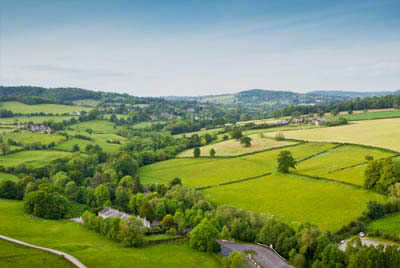However, for larger landlords, such as landed estates, university colleges and the Church Commissioners, whose income arises mainly from rents, the making of significant exempt supplies restricts their ability to recover input VAT on repairs and on professional fees. These landlords may choose to make a formal VAT election known as an ‘option to tax’. The effect of the option is to convert their supplies of the land and buildings (except residential property) to a standard rated supply on which they will charge the usual 20% VAT. The landlord can then recover input VAT related to the standard rated supplies.
For tenants of farms subject to standard rated rents, the extra cost is usually no more than a cash flow issue. Most farms can recover the input VAT on their rents via the next VAT Return because their business is making zero rated or standard rated supplies.
A tenant who occasionally sublets a field (potato land, for example) should not charge VAT on the rent (an exempt supply) unless the tenant has also made an option to tax election. Whether the tenant pays rent to his landlord is of no relevance. Advice on the possible implications should be taken, but for most farm tenants there will be no restriction on the input VAT recovery unless the VAT paid on the land and relevant professional fees by the tenant exceeds the de minimis threshold of £7,500 per year.
The sale of farmland
Similarly the sale of farmland and buildings will be exempt from VAT except when the seller has made an option to tax election on the land.
The cost of buying a farm will be significant so it’s worth considering the additional costs, should VAT be charged. Take, for instance, a 500 acre farm with buildings and a farmhouse costing £5.5 million (with £500,000 allocated to the exempt farmhouse).
- VAT on the £5 million (the farmhouse is exempt) at 20% will be £1 million (unless there is a transfer of a going concern);
- It will take several weeks to recover this VAT and HM Revenue Customs are likely to require proof of the VAT charge before making the repayment causing additional delay;
- Stamp Duty is charged on the VAT inclusive price at 5% (except for the first £150,000);
- The Stamp Duty on the £1 million VAT will cost an extra £50,000. This is not recoverable.
So be careful before agreeing to purchase a farm on which VAT will be charged.
Transfer of a Going Concern (TOGC)
If certain conditions are met, the sale of a farm by a seller who has made an option to tax election will not be subject to VAT. For purchasers who meet the conditions, no VAT will have to be paid and the additional Stamp Duty cost is avoided.
The conditions are:
- The purchaser must be registered for VAT;
- The purchaser must make an option to tax election on the land before the purchase is completed; and
- The purchaser must use the land for the same business as the seller.
If the conditions are met, then no VAT is chargeable. This treatment is mandatory; it is not at the option of the seller.
If the business of the seller is the letting of a farm and the purchaser will carry on the same business with a sitting tenant, it is easy to meet the TOGC conditions.
For a farmer purchasing a farm subject to VAT it may be possible to ensure the conditions are met by having a farm business tenancy on the land organised from the date of purchase. However, if the previous tenant has quit under a formal notice before the date of the sale, the seller is no longer carrying out a business of letting a farm, therefore a TOGC would not be possible.
The next step
For further information on any issues highlighted in this blog post, or to discuss your VAT position, please get in touch with your local rural UHY adviser or complete our online contact form.
Alternatively, for more information on the services we provide to the rural sector please click here.

